Issue 6: Conflict

Brood of War
by Chana Kohl
Voice-Only Encrypted Transmission
Origin: Orion-Cygnus Wormhole Station
Destination: Calgary-Edmonton, New Earth
Date: 28 August, 678 NE
Hi, Jess. In case you don’t recognize my voice squeezed by gravity and skimmed across 4,000 light-years, it’s me, Joe, your affably winsome bro messaging you. Modesty aside, I’m mid-way through my exomedicine rotation and work in the Centauri sector is never dull. I’m in constant contact with every walk of life, organic and synthetic. Don’t worry. I’m nowhere near the conflict zone, although we do get overflow cases from time to time.
I held a Zyaran heart in my hand today: five chambers of quivering, translucent jelly, embedded with shrapnel and fighting for every beat. Oh, you definitely would have hurled. Just like whenever we’d sneak into Dad’s lab and ogle his jars of teaching specimens. Med school just was never in the cards for you, sis.
My patient mended quite nicely. It helps that Zyarans regenerate body parts faster than a Nipsican sea cucumber. And while the captain will live to fight another day, I can’t say the same for the soldiers under her command. Reports are they formed a living shield around her until reinforcements arrived. Strange what people sacrifice themselves for in war.
Oh, I almost forgot. I found a brood of Kivrhak eggs this evening, just left abandoned between Pediatrics and NICU. Our holographic attending, Kel7, said Kivrhaks, like Earth’s cuckoos, evolved brood parasitism in response to environmental stressors. Weird war-time strategy, huh?
Voice-Only Encrypted Transmission
Origin: Orion-Cygnus Wormhole Station
Destination: Calgary-Edmonton, New Earth
Date: 14 October, 678 NE
Well, we had an unfortunate misunderstanding between two patients today. A Zyaran got quite upset when a Kivrhak bent down to seal his mag-boots. Apparently, displaying one’s cloaca is considered a major affront to Zyaran sensibilities. Out of nowhere we heard the high-pitched screeches and caws of indignation over the massive humiliation this caused. It really could have gone ugly if we hadn’t intervened.
Kel7 said that despite the obvious differences, Zyarans and Kivrhaks descend from the same species. There’s even a song they sing, usually after they get ripped on Nsuarian ale, about some fabled ‘Mother Bird’ who will swoop from the heavens one day and gather all her children to live as one.
Doesn’t look like that’s happening anytime soon.
On the brighter side: my Kivrhak brood finally hatched! Kel7 said they would never survive, their shells were too thin and fragile from exposure, or maybe some genetic flaw. They seem to be thriving though, kinda cute. And very hungry.
Voice-Only Encrypted Transmission
Origin: Orion-Cygnus Wormhole Station
Destination: Calgary-Edmonton, New Earth
Date: 11 December, 678 NE
Hey, Jess. It’s late. I can’t sleep.
Remember the time Dad took us fishing at Ten Peaks? The skyline reflected so perfectly on Moraine Lake. If you looked long enough, you’d lose track of which way was up and which was down. I dreamt I was crossing that lake. You were standing on the other side. I thought it was frozen, but I fell through. I called out to you. I could see you, but I couldn’t reach you. I just sank to the bottom.
It was so cold.
Strange how dreams and memory patchwork themselves in your mind.
I guess you heard about the recent uptick in hostilities. Violence is spilling over. Kivrhaks and Zyarans are more alike than different, but when has common ground ever stood before the pursuit of power or resources?
For millennia, the galaxy’s species evolved believing we were alone. Not only were we the center of the Universe, but the reason for it. It was all for us.
We were wrong.
Still, life is rare. Control of freight routes, freedom of wormhole access… you’d think these things could be solved without bloodshed. Maybe it’s true. War is the inevitable price of survival. It just feels exhausting sometimes.
I should probably go check on the hatchlings.
I love you, Jess.
Voice-Only Encrypted Transmission
Origin: Orion-Cygnus Wormhole Station
Destination: Calgary-Edmonton, New Earth
Date: 15 January, 679 NE
There’s now debate whether to enforce ‘temporary paid leave’ for all staff arriving from conflict zones, a blockade that would seriously jeopardize patient care.
Jess, I will quit before I let that happen.
I don’t care what the talking heads back home say. Conflict may be inevitable, but war is a choice. It’s a choice to think in zero-sum terms of us vs. them instead of we. It’s also a choice to fan flames from 1000 parsecs away, yelling slogans, waving flags, keeping score—it’s not a soccer match. These are beings.
I ran a genetic analysis today that confirmed my suspicions. These Kivrhak chicks? They’re half-Zyaran. Kel7 said it won’t matter if they survive to maturity, if either species even catches wind they exist, they’ll be destroyed. I asked if we could pull some strings and get them transferred to Persei IVc. There’s a facility that specializes in interspecies hybrids.
It’ll be good if they can be raised far away from this chaos. At least they’ll have a chance.
Voice-Only Encrypted Transmission
Origin: Orion-Cygnus Wormhole Station
Destination: Calgary-Edmonton, New Earth
Date: 4 April, 679 NE
Hello, Jessalyn. My name is Kel7. I am the holographic attending physician and Director of Exobiology at OCWS Medical Facility. I’ve worked with your brother, Dr. Joseph Ouellette, closely this past year. It is with great sadness I must notify you that Joseph was killed today during the performance of his work duties.
Our earliest reports are that, in a motivated attack, an explosive of unknown origin was hidden within a shipment of medical supplies.
I found Joseph to be a deeply caring individual who spoke of his twin sister often and with fondness. I am truly sorry for your loss.
You should know that before he succumbed to his injuries, Joseph managed to carry a Centauri brood he was caring for to safety. I just got word they will receive secured passage to the Persei system, in accordance with his wishes.
ꕤ
Chana Kohl works in Jerusalem in clinical research. Writing speculative fiction on the bus and during lunch breaks, her short stories have appeared in 365Tomorrows, AntipodeanSF and the upcoming Planetside Anthology (Shacklebound Books). She is a 2022 recipient of the Gotham Writers’ Josie Rubio Scholarship. Twitter: @chanakohl
Currently Reading: New Suns: Original Speculative Fiction by People of Color, edited by Nisi Shawl.

Digit
By Christi Krug
It’s done: I’ve activated the BioFocus on my left hand, third digit. Back when I was a girl, Rusi, and you weren’t even a thought, we used our fingers for everything! We touched mud, fur, weeds, worms, food—chocolate puddings and bouncy hot dogs—food came in such shapes! There remains special sensitivity in our fingerprints, you should know, even as they interface with Neural Port Settings. We took our bodies for granted in that era, our hands, wrists, knuckles; we ate with our fingers. I never considered this finger, what it wanted, who it was for. As an adult, sure, I got married, got divorced—a couple of times for good measure. It’s what people did. Your grandfather, Wolfgang, was a freight flyer, and all the long hours and interplanetary traffic made him grumpy. We quarreled. When I married Harry, my titanium wedding band with the serpentine sapphire was a conversation piece. Nevermind that I too became merely Harry’s conversation piece. Those were busy times, though, and he was preoccupied with colonizing OceanForrest, and who could blame him? I’ve always gone along, a pleasant person, allowing. Anyway, before you were incubated, the worms and furred things went into steep decline, and I was alone. Then that awful dictator, Numm, came into power and removed us Ignorables, taking us Three- and Four-Decaders from our villages where we had worked using our hands. They razed our workshops to make launching cubicles. They affixed me to this multi-pronged plasmaluminum machine. Said I’d be much less a burden immobilized. I allowed the slow turnoff of all my limbs, fingers.
Thank God for revolutionaries like NewGenMo (motto: Let’s be humans again!), creator of the BioFocus with its sparkling dusty blue hum and barely visible violet netting, making me understand, know, feel my tallest digit. There’s warmth, pulsation, the traveling of fluids through fine channels of electricity amid the tissue-clothed phalanxes. I can’t even begin to tell you the thrill of fully feeling this finger. Maybe next I’ll slap a LifeScreen, swat a Drone2fly, stretch my hand in the air, fingerpaint!
I lift my third finger, hold it up, remembering anger, a gesture of long ago. As with everything, I never know how to respond to my body, to the passing of time, until it is too late.
ꕤ
Christi Krug, an Oregon Coast resident, coaches writers and leads retreats, yoga, poetry, and nature experiences. She is the author of Burn Wild: A Writer’s Guide to Creative Breakthrough. She has been chosen as a 2022 Centrum Emerging Writer Resident. Twitter: @ChristiKrug
Currently reading the short stories of HP Lovecraft.

Swans
by Jesse Rowell
Evening hung around our necks and choked our words into sputters and half-muttered phrases. Terracotta soldiers marching through dirt and time, we tripped over the sounds of coughing in concert hall recordings and listened to our epitaph repeat, “There will never be enough ghosts in this world to hold past regrets.”
Fragments of dead soldiers’ voices in our helmets guided us through the wreckage with stories of missing families, like the father who drunkenly grabbed a swan by its neck at a picnic near a lake. Those powerless to stop the violence cried out as the swan’s body slumped into a nest of feathers, its neck splayed to the side like a plant wilted under the sun. Reborn as a pedalo with a wooden enclosure for its body, it held teenage lovers who pedaled across the lake, looking for a distance to make out under its rigid wooden neck.
White phosphorus flashed, and we buried our faces in the mud. We called them husks, our enemies, the former humans who had come back to Earth from the stars with alien technology used to colonize and kill us. What had made them human had been ripped out, that kernel of identity as a collaborative member of our species replaced with something inhumane and cruel. We had celebrated their remarkable accomplishments, our brothers’ and sisters’ return from space with its secrets, jubilation on the streets when we still had streets.
Gunfire did not sound like rustling silk. Bombs did not fill us with awe. Instead, the boots of burnt-out vehicles snapped open at the moment of impact like mouths in expressions of shock. Ash and detritus forced inside, the fine powder of disintegrated concrete settled over the pallid faces of the dead trapped inside. There was no coughing, only the voice in our helmets guiding us through the wreckage and the sounds of machines launching fire and noise on people who had lived and loved in our cities, forever gone.
The swan came back ashore with its body no longer made of wood, the teenage lovers still trapped inside. People prayed that the swan wouldn’t squawk, wouldn’t alert the drunken father who would grab it by its neck again, kill it, and trap the teenage lovers inside its body.
Machine, tell us what to do, give us our tasks. No more stories about swans and teenage lovers. We used to give you tasks, but now we depend on you to tell us what to do. The voice in our helmets guided us through a cratered mansion and its barbecue grills, a feast for plenty when we used to cook outdoors and indoors across multiple kitchens. Inside we saw a cracked toilet hiding in a corner. A sink protruded from the wall with its proud potbelly. A shower curtain rested in a heap on the floor as its hooks dangled menacingly from a shower bar.
Before our war, the husks pretended to be human, pretended to rejoin our communities as they stumbled into loos and splashed themselves in sinks like waterfowl. Scabs peeled back from incessant picking, raw pink islands where new skin grew beside oceans of crinkled crepe and freckled skin. They looked like us, but we couldn’t connect with them as they spread disinformation through the tidal flow, their memetic messages turning us against ourselves. “When a sieve is shaken, the husks appear,” we quoted Sirach when they became our enemy.
Dogs scavenged the streets before venturing into the woods. They expected their owners to return someday with a heaping bowl of mashed meat and say, “Who’s a good boy? That’s right, you’re a good boy.” The dogs that escaped outside were the lucky ones, but those trapped inside with no doggy door or screen to claw-gnaw through starved. Their barks turned into whines and, finally, silence.
Trapped inside the swan, the teenage lovers passed perfumed love letters with words of support to each other. The lovers had kept the swan calm and the drunken father unaware of its return to shore, but they fretted knowing that their lives depended on the swan’s survival, like a nation-state protecting its people. Love of country, the voice in our helmets reminded us, is memory, and a husk trying to remember love is like something dead trying to remember life.
The voice identified the location of a warren where the husks hid, and we attacked the spitting angry things. They were not human to us, and we were not human to them, aggressors married in an ugly dance of violence. The atrocities we committed and rationalized because we were dehumanized, but when we saw them unbreathing in the mud, we thought they looked human. We touched their faces and closed their eyes, these strangers from the stars that had come back to haunt us.
The drunken tyrant of a father killed the swan again, unprovoked this time as the swan sat quietly at peace on the river rocks. The malfunctioning AI did not explain to us why he killed the swan again. It repeated the story on loop, the teenage lovers trapped inside the swan pedalo enduring the same cycle of violence over and over through the history of time.
We watched a riot of color through the rain, spring buds painting the landscape like brush strokes on a canvas. The voice in our helmet directed us, those of us left living, to the next clutch of husks to kill. There will never be enough ghosts in this world to hold past regrets.
ꕤ
Jesse Rowell has fiction featured in multiple publications across media outlets, including NPR and several literary journals. He can be found at https://jesserowell.com
Currently reading: And What Can We Offer You Tonight by Premee Mohamed.

Night of the Living Raccoon
by Jonathan Worlde
BLAM! BLAM! BLAM!
What the hell? Who was shooting so close to the campsite?
BLAM! BLAM! BLAM!
Sounded like shotguns, coming from beyond the stand of trees down by the river.
Saul headed in that direction, armed with nothing but a hickory walking stick. He passed several android campers, busy cooking breakfast over open fires. They appeared startled by the gunfire, glancing around the vicinity with looks of bewilderment.
BLAM! BLAM! BLAM! Someone was down there on the river shooting at geese, out of hunting season. What came to mind was some rednecks acting like irresponsible idiots.
He walked down the hundred yard path, over the carpet of fragrant pine needles from the towering Douglas firs, to the break in the trees leading to the river bank. On the water he noticed a partially submerged island with stunted trees and reeds, and within that vegetation was a makeshift blind where three men with shotguns were sitting. They had deployed a half dozen goose decoys on the water around them. A small motorboat was tied to a sapling on the island. In the far distance rose the charred, crumbling towers, remains of the ruined city’s once majestic financial district.
The hunters noticed him at the same time he saw them in the early light. He fought to overcome his natural anxiety when he saw the guns.
“You boys from around here?”
“No sir, we’re from up that-a-way,” and they all pointed their gun barrels in the direction upriver, which could have made a good joke if it was in a movie instead of happening right here in front of him.
“You think you should be shooting off guns so close to a campsite?”
“We didn’t know. We’re just about to leave.”
That interchange was enough for him to assess the quality of their speech pattern and neural sophistication. “Which are you, Jupiter series IV or V?”
“Jupiter V. How’d you guess?”
He smiled. “I built you boys. Your ability to aim and shoot a cyborg goose out of the air—I designed the software for your motor skills—your neural acuity.”
“Gosh, it’s nice to meet you sir. We’re sorry to disturb you.”
“It’s just that you’re a little too close to other folks to be shooting at geese. Enjoy the day now.”
He turned and headed back up the path. At least he’d put an end to the shooting. He imagined what this river valley must have been like a hundred years ago, before the great extinction, when people still hunted the seeming inexhaustible supply of Canadian geese, white tail deer and black bear.
Jesus, what has the human race done to itself. Do we even deserve to go on living?
Saul enjoyed his day job, fine-tuning the software that enabled the next generation to even further outshine the last. And his wife was a medical technician of sorts, running diagnostics and repairs when something in the androids went awry. She specialized in the child units, which, contrary to many people’s way of thinking, were not just smaller adults. Saul’s only regret at this stage in their relationship was that they didn’t have children of their own.
As he walked, he noticed a small animal leaving a thicket and moving toward him. At first, he thought it must be a cat, but then realized it was a raccoon, one of the smaller mammalian species to have survived the great die-off. This one must be on its way back to its home after a night of foraging.
Something was off about its movements. Normally a wild raccoon would avoid an encounter with a human, but this one continued moving toward him. Before he could react, the creature launched itself at his leg and scrambled up his pants, sinking its teeth into the skin of his forearm. Saul let out a shriek, repulsed by the swampy reek of its fur. Grabbing the beast behind its head with his right hand, he tore it loose from his arm, flinging it aside to the ground. He realized this animal must have rabies, if it would attack a much larger human in opposition to its natural instincts. The raccoon skittered away into the underbrush.
Horrible! Disgusting! Now he wished he had one of those hunters’ guns so he could blast it to pieces. Examining his arm, he saw the animal had torn through the epidermis layer of skin. Katy would know how to fix it, but he shivered at the prospect of contracting rabies.
*
On a cot in front of their tent, Katy finished cleaning the torn skin. She used a tiny vacuum tool to remove dirt from the first layer of hydraulic tubes and cables in his arm, those facilitating the effortless motion of his wrist, hand and fingers. She applied a silicon lubricant, then skillfully heated and sealed shut the tear.
“There, good as new.”
Saul was reassured by the warmth in his wife’s voice and the sparkle in her light-blue eyes. He moved his fingers across the smooth graft.
“What would I do without you?”
“Cry like a baby?”
“Just the thought of that filthy animal biting into me makes me shudder.”
“I’m always telling you to be more careful!”
“But am I going to get rabies now?”
“Not to worry, there’s not a single living cell in your body that could become infected with the rabies virus, not since our last upgrade.”
He felt the tension dissolving. “Still – I haven’t been injured this badly in a hundred years.”
ꕤ
Jonathan Worlde is the fiction byline of Paul Grussendorf, who is an attorney representing refugees and a consultant to the UN Refugee Agency. Paul Grussendorf’s legal memoir is My Trials: Inside America’s Deportation Factories. Jonathan Worlde’s neo-noir mystery novel Latex Monkey with Banana was winner of the Hollywood Discovery Award.

The Colonel
by Lane Chasek
“That’s what the American public never knew,” Colonel Swenson says as I turn him onto his side. He’s soiled himself again. Of all the nursing home’s occupants, the Colonel is the easiest to clean because his feces doesn’t smell like feces anymore. Instead, it has the same boiled cauliflower smell that emanates from every pore of his aging body. I pull down his sweatpants, then his diaper, and get to work. “The KGB, Chairman Mao, the Zeta Reticulans—we were at war with all of them up until 1985. And nobody but me and the CIA knew about it.”
“Uh-huh. Tell me about it,” I say, even though he’s told me this story every day for the past month.
“The saucer crashed at Roswell. 1947. That’s how it all started, private.” He always calls me private. He calls all the orderlies private. “A reconnaissance mission gone wrong.”
“Uh-oh.”
“Uh-oh is right.”
I clean away some of the mess, scoop it up with damp paper towels and baby wipes. The skin on his buttocks and upper thighs is red and blistered, as if he’s been sitting in a pot of boiling water. Colonel Swenson yelps when I wipe too hard.
“Easy, private!”
“Sorry, Colonel.”
“It was a war those Reticulans were looking for. But we got ahold of them weapons…reverse engineered them bad boys. Gave ‘em a real run for their money after that. I’m the one who made all that tech possible, kid. Kevlar, mylar, fiber optics, Velcro, masers, lasers—none of it would have been possible if it weren’t for me.”
We use baby powder on his backside now (Gold Bond, with all its “soothing” chemicals, irritates his skin too much). I apply it liberally, slide a fresh diaper and a clean pair of sweatpants onto him. He smells pungent and floral now.
“I’m a hero, and this country doesn’t even know my name.” He shakes his head. He’s still shaking his head as I prop him up on his bed. The left side of his face, the side that’s been paralyzed since last year, droops down like softened wax. When I or any other orderly feeds him, we have to be mindful of which side of his mouth we feed. Last week he almost bit off part of his tongue.
Behind him are various black-and-white photographs of him and his friends from his army days. He never likes to mention that he signed on too late to be a true WWII hero, but everyone (from the orderlies and nurses, the aging grandmothers, and especially the other veterans) knows that the Colonel never faced what they call “real” combat. He wasn’t a warrior. His place had always been behind a desk at the Pentagon, reviewing research grants, writing technical reports and assessments.
“Judy’ll be here in an hour,” I say. His daughter visits every Wednesday. We have to remind the Colonel each time. Each visit, he seems less interested in news from the outside world, as if his daughter and his grandchildren don’t exist to him anymore.
“An enemy we never even saw. Hell, I never saw ‘em myself,” he says. His eyelids droop down. He picks at one of his thumbnails until the cuticle bleeds. His lips quiver as he mumbles something to himself, remembering.
“Those big black eyes. Gourd heads. Gray, rubbery skin,” he says, the limp side of his mouth drooping down toward his collar bone.
ꕤ
Lane Chasek (@LChasek) is the author of Hugo Ball and the Fate of the Universe and two books of poetry. Lane’s first novel, She Calls Me Cinnamon, is forthcoming from Pski’s Porch.
Currently reading: Harvard and the Unabomber by Alston Chase.
Lily’s War
by
Susan Cornford
Lily jumped down from the transport vehicle and rearranged her kit bag and rifle, grateful that the gravity was only three-quarters that of her home world. Her eyes cut to the right and she saw the stark fear on Marjory’s face. The corporal might be an android but she always reacted phobicly to the dog-like hybrid troops that Lily could see disembarking from the adjoining vehicle. She leaned closer, laid her hand on the back of Marjory’s neck and pressed the fingerprint-activated reset button, murmuring, “We’ll have the battalion medic adjust your mechanism later.” Marjory nodded her thanks. All in all, it was just another day in the Universal Army Corps.
She knew it had been a sensible decision on the part of the Consolidated Planetary Council, after so many worlds developed weapons of mass destruction that could, and once or twice had, disintegrated whole planets in some on-going warfare. So, now all wars were once again fought in the old-fashioned, soldiers-on-the-ground way. And they were restricted to a group of planets on the fringes of the known universe, where they would cause the least amount of disturbance. That’s why Lily was here: to fight for her home world against someone else’s home world for some cause that the politicians and negotiators had failed to resolve in peaceful and civilized ways. Lily could understand why the outlet was still needed; it was why she was here. She loved to fight and she’d found that everyone has some reason to do it.
*
Early next morning the battalions on both sides squared off across the hilly terrain. High-ranking officers gave the order to attack and the troops got down to it. Lily led her squad through the underbrush, silently signalling for them to spread out, as she scanned ahead for the tell-tale flash of sun on metal. There! Off to the right! She manoeuvred her soldiers into position. Rising briefly, she shouted, “Go!”, and they launched like a well-oiled machine. Bullets flew past her and pinged off nearby rocks. Rise, fire, duck, reload. It became like a mantra. By midday, they had gotten close enough that it had become hand-to-hand combat, with blood and bodies littering the ground as far as the eye could see. Before dark, the enemy started to retreat and finally managed to barricade themselves behind a natural, rocky outcrop. A stalemate was called for the day and the messy business of clearing up the wounded and dead began. Lily was lucky; she had only lost two of her squad. Many more had superficial wounds but these were easily dealt with.
The night was long dark before Lily had the chance to swallow a hot drink and some cold rations. Then she settled in her tent to compose and send off the death notifications to the bereaved families. Lily prided herself that she made each message unique and did not rely on the form letter that most others used. She wondered for a second about what she should do if her android, Marjory, were “killed”. Would she need to advise her manufacturer? “I must have been absent the day they covered that in training,” she mused.
Lily settled to sleep, hardly bothered by the occasional burst of gunfire exchanged by the two opponents, just to to let each other know that they were still fighting a war. As it happened every time she fell asleep, her mind unwillingly went back to her childhood and the many times she had been helpless and unable to fight back. Now, NOW she would make up for all that. Yes…
ꕤ
Susan Cornford is a retired public servant, living in Perth, Western Australia. She/her has pieces published or forthcoming in 365 tomorrows, AHF Magazine, Akashic Books Fri Sci-fi, Altered Reality Magazine, Antipodean Science Fiction, Corner Bar Magazine, Frost Zone Zine, Fudoki Magazine, Granfalloon Magazine, The Mythic Circle, Speculative 66, Theme of Absence and The Were-Traveler.

The Body in Battles & War
Against the backdrop of a world-wide pandemic and the largely undressed threats of climate change, it’s no surprise that life feels more uncertain than it has for many years. When it came time to set a theme for this issue (as we have done for all previous issues) we ended up deciding against it. With so much change happening all around us, it felt out-of-step to be prescriptive in any way.
We wanted to know what people were thinking about—their concerns, their feelings, their hopes and imaginings. We wanted to let the submissions speak for themselves and we hoped that a theme would emerge when we review them. Indeed, one did: Conflict… with each other, with our creator, with nature, and within ourselves and our bodies. The stories in this issue circle around the theme of human struggles—some enormous and world-reaching, others small and deeply personal.
They explore concepts of empathy and dehumanization—largely through the sense of the body in battle—whether it be a battle for acceptance of their identity in Astransnaut; the struggle of reclaiming one’s physical sensations one body part at a time, starting with their middle finger in Digit; acceptance of the value of life—even of different species, in Brood of War, and even the Colonel fighting long finished battles in his mind while his body faces the unwinnable battle against time. In Lily’s War, the protagonist is fighting alongside androids in the only kind of war allowed—a proxy war relegated to distant galaxies—and she muses about whether she must notify an androids maker in the case of loss, as she would a human’s family. It’s yet another angle on the question of the rights and treatment of those who are designated as ‘other’. Swans also envisions a battle and toys with the notion of ‘other’ when the invading ‘aliens’ are actually humans who left earth and finally returned with many enhancements and a desire to colonize and kill their earth-bound human predecessors.
We hope that reading these stories helps bridge the gaps between what is and what we wish to be. And whatever form it takes—human or not—may it at least be with compassion.













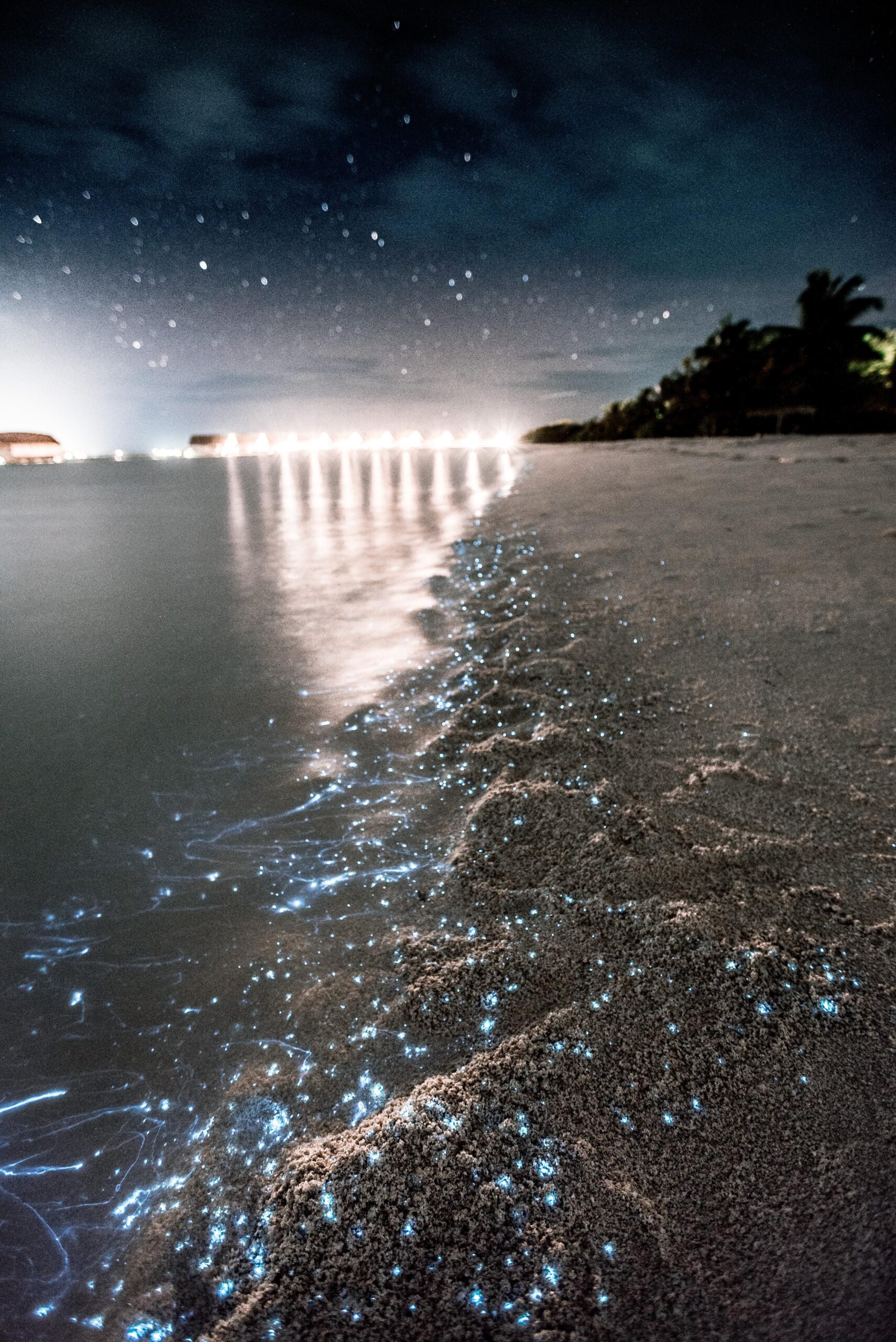






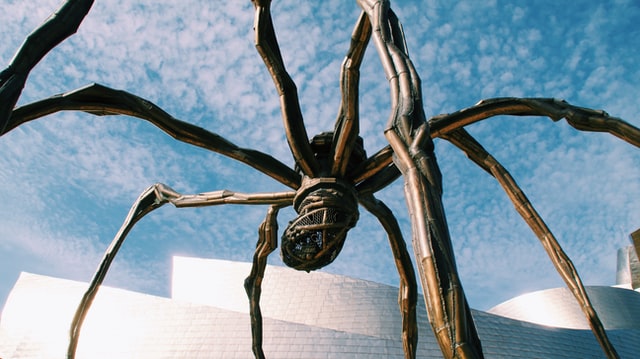
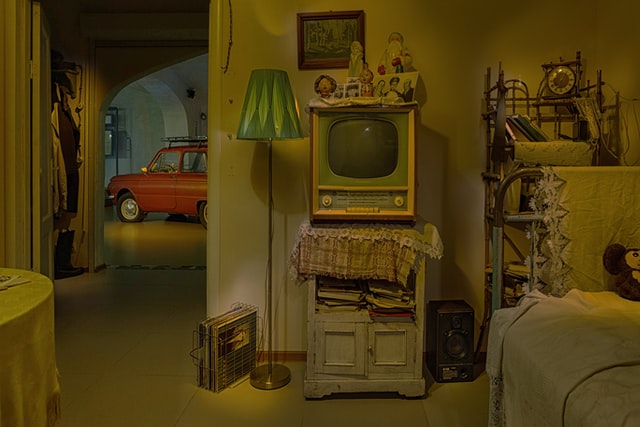

















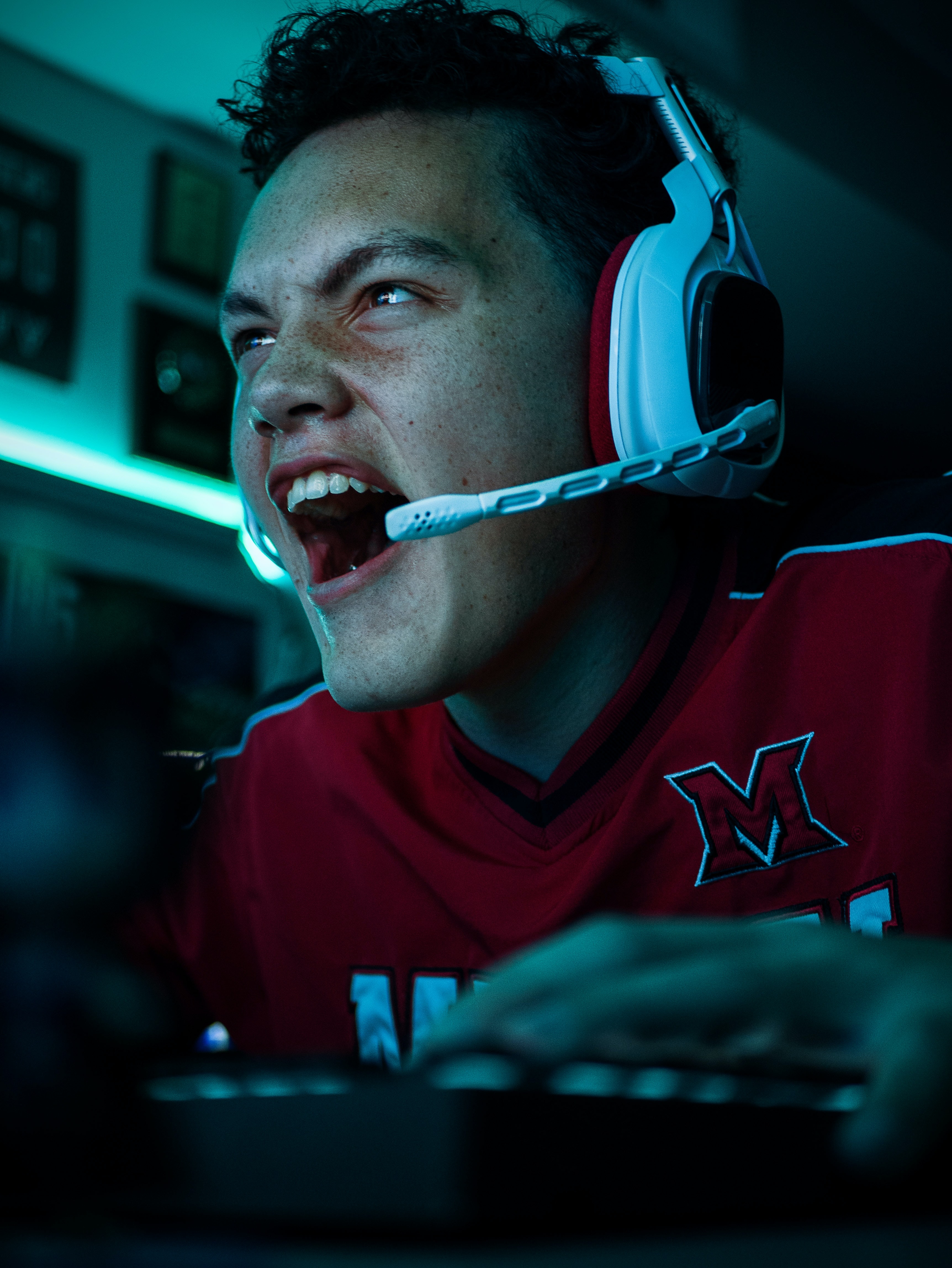
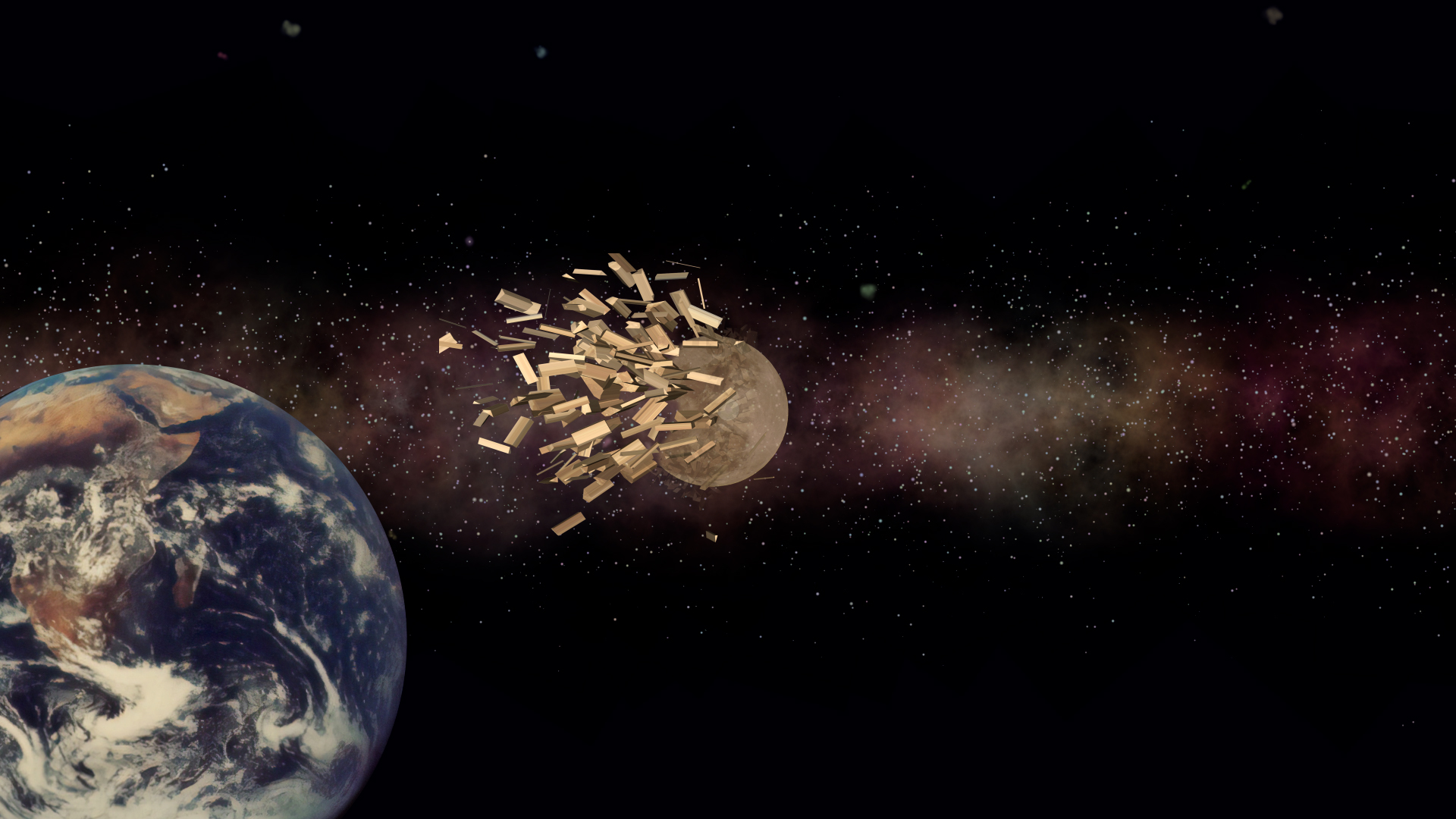









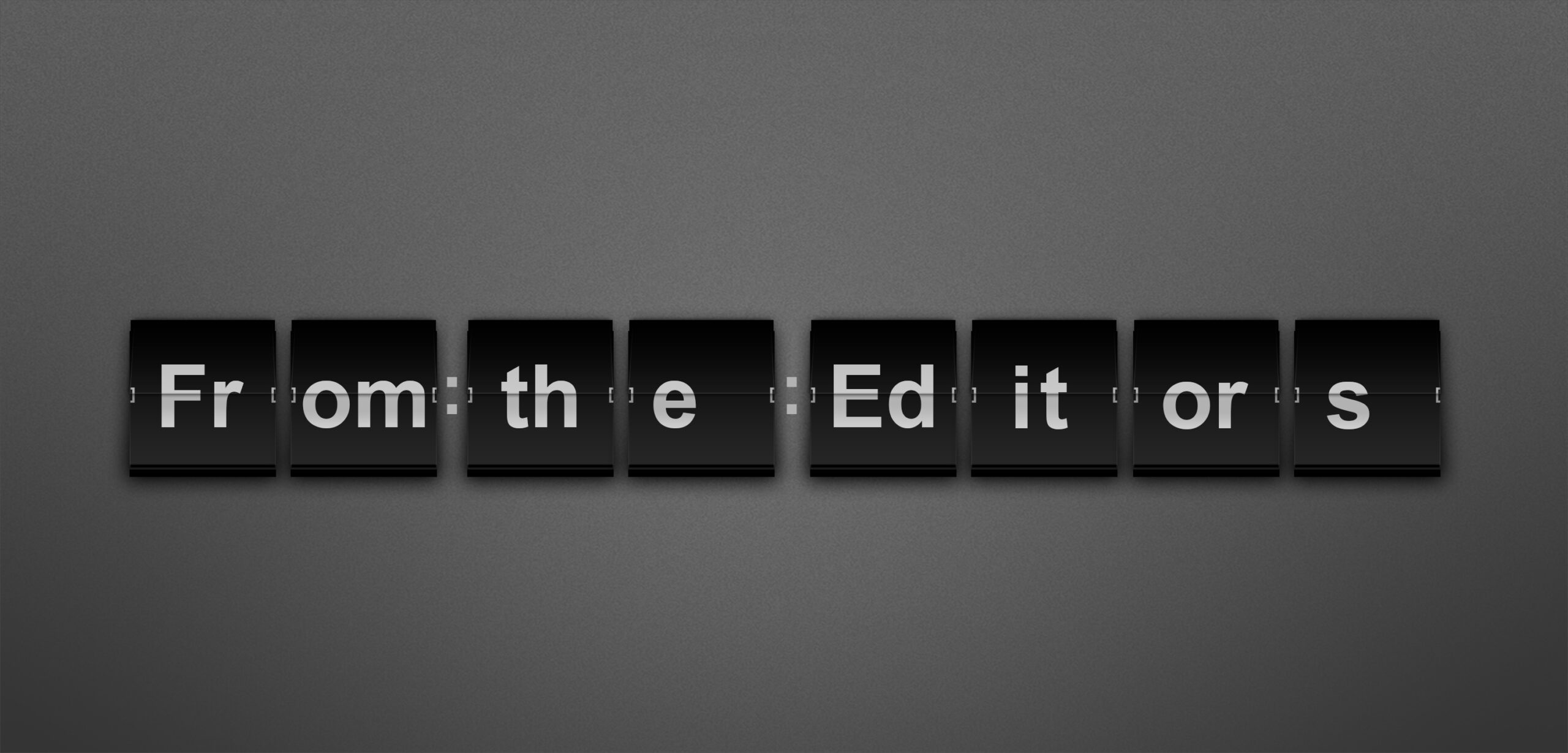
Recent Comments